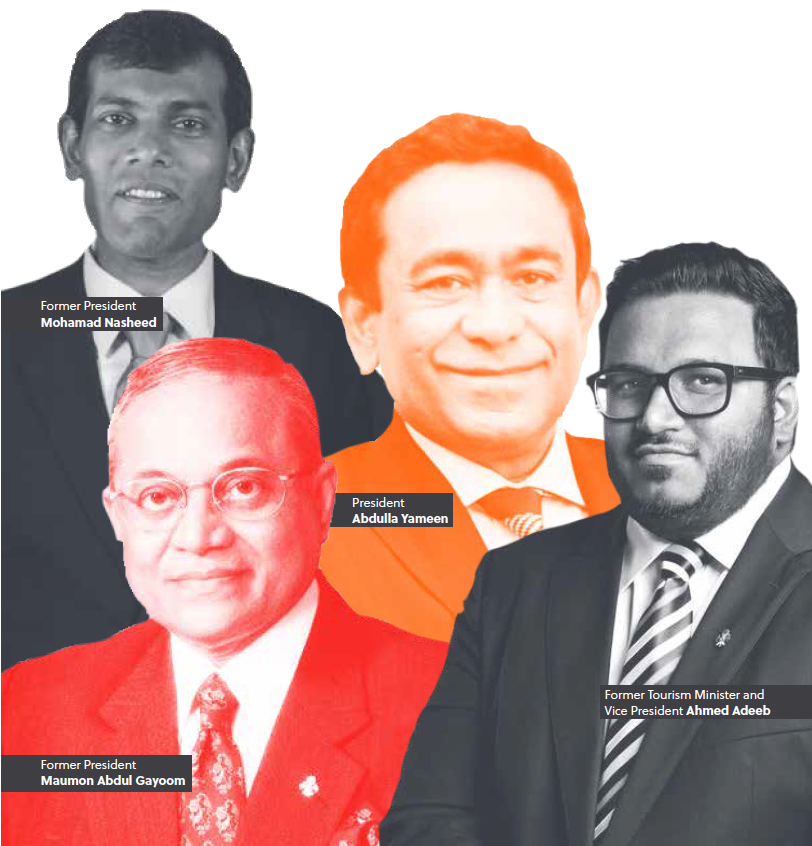Resorts, Riots and Reputations: Political Instability and the Maldivian General Election
In a largely unexpected development on 23 September, opposition candidate Ibrahim Mohamed Solih successfully unseated incumbent president, Abdulla Yameen, in the Maldives’ general elections. The result was surprising to many observers, amid widespread speculation that outgoing President Yameen would rig the election in the event of an opposition victory. Solih’s win is likely to overshadow recent criticism of Maldivian politics, where terms such as ‘democratic backsliding’, ‘debt traps’, ‘corruption’, and ‘human rights abuses,’ had become commonplace. However, numerous challenges still lie ahead for the president-elect, many of which present a threat to the country’s tourism sector. Any impending challenges to Solih’s presidency are likely to add to the perception of recent political instability in the country, which has already had severe consequences for the sector. Additionally, corruption allegedly fostered under Yameen carries profound reputational implications for the tourism industry, and will pose a significant challenge to the new government’s reform agenda.
PRESIDENT YAMEEN'S RULE
Current President Yameen was widely expected to win the 23 September general election. This was particularly the case after the country’s election commission banned the most popular opposition candidate, Mohammed Nasheed of the Maldivian Democratic Party (MDP), from contesting the vote. Nasheed, who served as the country’s first democratically elected president, was ousted in an alleged coup by his former vice-president in February 2012 and remains in exile after fleeing the country in 2016 to avoid politically motivated terrorism charges. Despite these concerns, in a move defying expectations, the MDP’s replacement candidate, Ibrahim Mohamed Solih, secured around 58 percent of the total vote, unseating Yameen. Although many had anticipated Yameen would contest this outcome, turning to the security forces to intervene on his behalf, Yameen has since conceded defeat. It seems that the threat of targeted US and European Union sanctions in the event of a disputed election result acted as an effective deterrent against Yameen clinging to power.
POLITICAL INSTABILITY IN THE MALDIVES
Nevertheless, the Maldives’ recent history has been characterised by a high degree of political instability and this will have a lingering effect on the political environment under Solih. Notably, between February and March 2018, President Yameen declared a countrywide state-of-emergency in response to a Supreme Court ruling ordering the release of political prisoners and the reinstatement of MDP members of parliament. The declaration prompted violent political protests in the capital, Malé, in which dozens of MDP supporters were injured in confrontations with security forces. The two Supreme Court judges responsible for the ruling were subsequently arrested, as were dozens of opposition supporters and politicians. This recent political volatility has had profound implications for the tourism industry. Tourism accounts for over a third of the country’s USD 3.5 billion annual gross domestic product. The February-March state of emergency alone prompted numerous cancellations and a significant loss in revenue. One 282-room hotel reported 50-60 daily cancellations for the duration of the state of emergency, and overall cancellations throughout the country rose by around 25 percent.
Despite Solih’s victory, Yameen remains popular, especially among religious conservatives, who are likely to protest against any moves taken to hold Yaseem accountable for the alleged corruption.
Furthermore, recent media reports, notably a September 2018 report from the Organised Crime and Corruption Reporting Project (OCCRP) entitled “Paradise Leased: The Theft of the Maldives,” revealed how allegedly corrupt island and atoll leasing agreements had propped up President Yameen’s administration. The report is largely based on leaked messages and documents found on three gold-plated smartphones belonging to former Tourism Minister and Vice President Ahmed Adeeb, who was arrested on corruption charges in 2015. These documents show that, by reportedly ignoring the legally-mandated public tendering process, the tourism ministry leased dozens of islands and atolls for below market prices in exchange for kickbacks. These kickbacks were then allegedly used to bribe figures in the judiciary, parliament, security forces, and election commission to ensure political loyalty to President Yameen.
Now, despite Solih’s victory, Yameen remains popular, especially among religious conservatives, who are likely to protest against any moves taken to hold Yaseem accountable for the alleged corruption that occurred under his regime. Religious politics are a powerful force in the country and maintain the capacity to drive significant protests against Solih’s administration. The impact of any future instability will have short-lived but important consequences for the tourism sector, manifesting in cancellations stemming from political or religious protests.

LONG TERM CONSEQUENCES
However, the widespread corruption under Yameen will have long lasting reputational repercussions. Specifically, the corruption allegations pertaining to lease agreements for islands and atolls in the tourism sector underscore the need for travel and resort companies to conduct thorough due diligence investigations before investing in the tourism sector, both within the Maldives and elsewhere.
These allegations also raise concerns for the country’s post-election reform agenda. Solih campaigned on reformist and anticorruption platforms; however, in order to win, he formed coalitions with former Yameen allies accused of benefiting from these practices, including Yameen’s halfbrother, Maumon Abdul Gayoom, and resort tycoon turned politician, Ibrahim Gasim. Furthermore, efforts to combat corruption will likely be opposed by entrenched interest groups within Maldivian institutions, including the judiciary and law enforcement. Going forward, Solih will need to balance demands for reform against the interests of his coalition partners and of entrenched corrupt groups within Maldivian institutions, which will likely try to undermine his efforts. Therefore, while Solih’s electoral victory is a relief for those concerned about the state of Maldivian democracy, threats to political stability and the tourism sector’s role therein, remain.